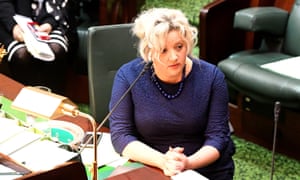
Far too many Victorians have suffered too much and for too long at the end of their lives.
Talking about death is a challenging and confronting issue. For too long, end-of-life issues have been in the too-hard basket. This needs to change. Improving policy and community awareness about the end of life, and death, are essential if we are to improve Victorians’ choices about how and where they experience both.
Encouragingly, in recent years, Victoria has been leading the way on end-of-life issues – talking about them, and putting in place reforms for improved choices and better services.
In consulting the community about these reforms, the evidence is clear that we have not been providing enough Victorians with the genuine choices they need, in line with their preferences, to have a good end of life and death.
For a small number of people at the end of their life, having personal choice may mean having control over the timing and manner of their impending death to alleviate suffering they can no longer tolerate.
The voluntary assisted dying bill 2017 balances a compassionate outcome for these people at the end of their lives who are suffering, and providing community protection through the establishment of robust safeguards and comprehensive oversight.
The Legislative Council’s standing committee on legal and social issues undertook a comprehensive inquiry into end-of-life choices. The committee received a great deal of evidence about the pain and suffering being experienced in the community today.
It heard harrowing stories of many Victorians taking their own lives in painful, lonely and unacceptable ways. Evidence from the coroner indicated that one terminally-ill Victorian was taking their life each week.
This evidence resulted in the key recommendation of the parliamentary committee report, which was that Victoria should legalise voluntary assisted dying.
The parliamentary committee identified appropriate restrictions for the introduction of voluntary assisted dying in Victoria.
This choice of voluntary assisted dying should only be implemented within the context of existing care options available to people at the end of their life. Voluntary assisted dying is not a substitute for palliative care, and will not preclude access to the high standards of palliative care enjoyed by Victorians.
I appointed a ministerial advisory panel to develop the detail of a voluntary assisted dying framework for Victoria and to ensure that it would be safe, compassionate and workable.
The ministerial advisory panel has combined its considerable expertise with extensive consultation with stakeholders across Victoria to ensure legislation could be effectively and safely implemented.
I commend the ministerial advisory panel for their considered recommendations and their comprehensive report.
The voluntary assisted dying bill will give effect to the ministerial advisory panel’s recommendations for a safe and compassionate legislative framework.
Making a decision about the timing and manner of one’s death may be an immensely personal and private decision or it may be a decision that is openly shared and discussed with family, friends and community.
What is important is that the decision is the person’s own decision, based on their own values and beliefs.
This bill recognises that some people may prefer to choose to hasten their impending death, rather than continue to endure suffering that has become intolerable to them.
The bill only allows the person themselves to make the decision to access voluntary assisted dying, and there are strong safeguards in place to ensure the decision is the person’s own, and that it is voluntary, informed and enduring.
The bill recognises that people are entitled to have different values and beliefs and that these should not be imposed on others. Just as it will be a matter for an eligible person whether or not they access voluntary assisted dying, health practitioners will also be able to determine the extent of their involvement in voluntary assisted dying.
This bill is uniquely Victorian, and has been developed recognising the diversity of Victorians. In recognising our strong Victorian values, the bill also includes a set of principles that establish a sound framework for its operation.
These principles recognise the value of every human life, respect for autonomy and a person’s preferences, choices and values, and the provision high quality care.
Jill Hennessy is the Victorian health minister. This is an edited extract of the speech she gave on Thursday at the second reading of the bill.